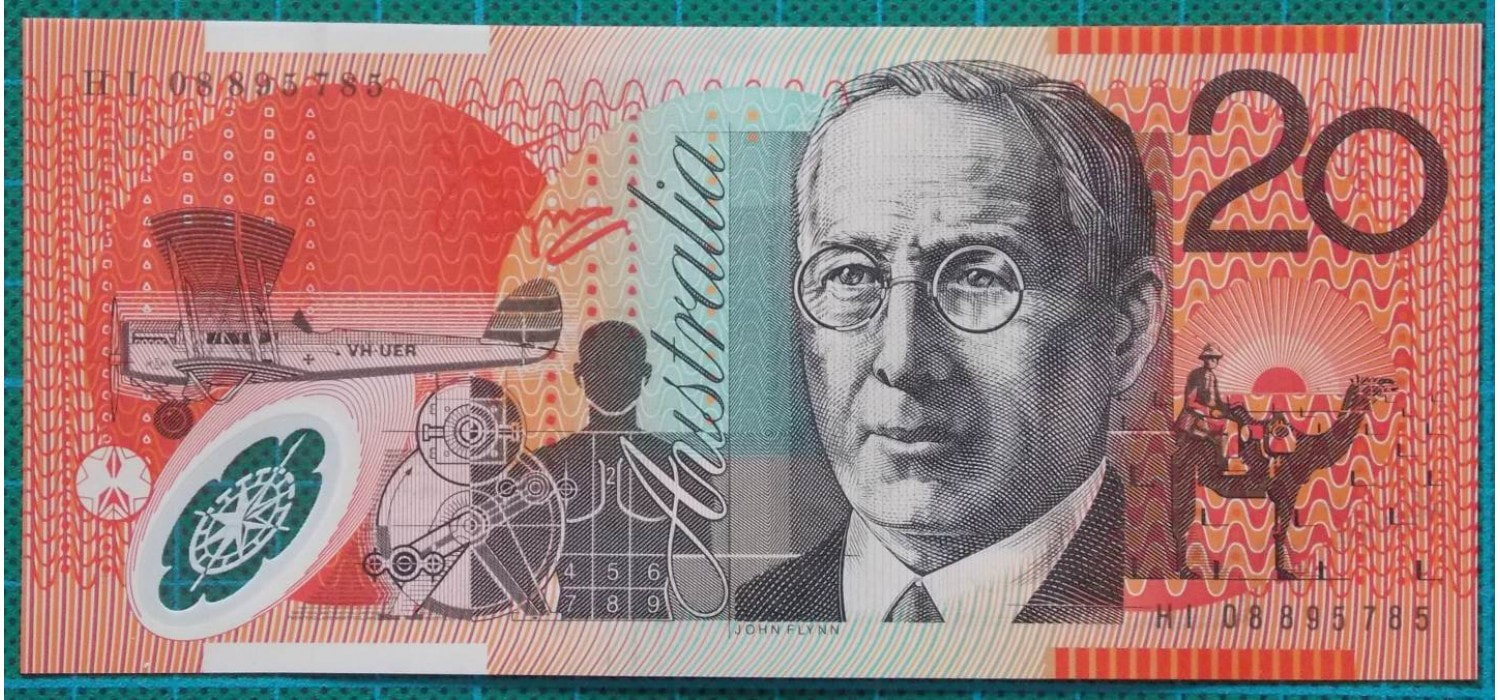Thanks to all who helped with our drought relief projects.
$4,600
That is how much we have raised for drought relief at St Stephen’s Uniting.
We thank God we have an abundance of resources to share.
$4,600
That is how much we have raised for drought relief at St Stephen’s Uniting.
We thank God we have an abundance of resources to share.

Rev. John Flynn Commemorated On The $20 NoteThe young Rev John Flynn, who is commemorated on the $20 note – the founder of what is today Frontier Services – was commissioned by the Presbyterian Church to look at the needs of Outback people. His report to the Presbyterian Assembly in 1912 resulted in the establishment of the Australian Inland Mission (AIM), of which he was appointed Superintendent.
John Flynn’s Vision – Establishing A ‘Mantle Of Safety’In the late 19th Century, the Christian churches became increasingly concerned for the welfare of people living in the Outback, and Congregational ministers began “travelling out” to remote areas in the 1890s. In 1894 the Smith of Dunesk Mission in South Australia sent out a Presbyterian Minister to areas north of Beltana in South Australia and a nursing service began at Oodnadatta in 1907.
Flynn had a vision to establish a “mantle of safety” so people could build sustainable communities despite the hardships of Outback life, which we are still driving to this day.
A pressing need was for medical services and Flynn focused on setting up nursing posts and hospitals. Sisters travelled by camel, horse, rail and even motor tricycle.
The first AIM “Patrol Padres” went out in 1913 by camel and horse from Pine Creek, Oodnadatta, Broome and Port Hedland to provide pastoral care and counselling services to people on isolated properties, mine sites and road gangs. The first car was purchased for the Cloncurry Padre in 1915.
John Flynn also dreamed of using aircraft to conquer the vast Outback distances. In 1928, he formed the AIM Aerial Medical Service which later became a separate organisation called The Royal Flying Doctor Service.
Flynn also saw improved communications as another way to overcome Outback isolation. With his encouragement, the pedal wireless was invented by Alf Traeger, and featured a generator operated by pedal power similar to a bicycle. By 1937 there were 64 pedal wireless sets in the AIM network of nine hospitals, seven Patrol Padres, eight Mission and Welfare Centres and three Aerial Medical Service bases.
Flynn died in 1951 and the Rev Fred McKay was appointed Superintendent and continued to expand the AIM’s services for Outback people. Rev Fred McKay then was called to be one of the ministers at St Stephen's Uniting Church.
In the stairwell at St Stephen's Uniting you can see a stained glass window with the John Flynn Memorial Church in Alice Springs, Northern Territory, reminding us of our connections with Frontier Services.
Each year St Stephen's Uniting hold events to support the ministry of Frontier Services.
John Flynn’s Vision – Establishing A ‘Mantle Of Safety’In the late 19th Century, the Christian churches became increasingly concerned for the welfare of people living in the Outback, and Congregational ministers began “travelling out” to remote areas in the 1890s. In 1894 the Smith of Dunesk Mission in South Australia sent out a Presbyterian Minister to areas north of Beltana in South Australia and a nursing service began at Oodnadatta in 1907.
Flynn had a vision to establish a “mantle of safety” so people could build sustainable communities despite the hardships of Outback life, which we are still driving to this day.
A pressing need was for medical services and Flynn focused on setting up nursing posts and hospitals. Sisters travelled by camel, horse, rail and even motor tricycle.
The first AIM “Patrol Padres” went out in 1913 by camel and horse from Pine Creek, Oodnadatta, Broome and Port Hedland to provide pastoral care and counselling services to people on isolated properties, mine sites and road gangs. The first car was purchased for the Cloncurry Padre in 1915.
John Flynn also dreamed of using aircraft to conquer the vast Outback distances. In 1928, he formed the AIM Aerial Medical Service which later became a separate organisation called The Royal Flying Doctor Service.
Flynn also saw improved communications as another way to overcome Outback isolation. With his encouragement, the pedal wireless was invented by Alf Traeger, and featured a generator operated by pedal power similar to a bicycle. By 1937 there were 64 pedal wireless sets in the AIM network of nine hospitals, seven Patrol Padres, eight Mission and Welfare Centres and three Aerial Medical Service bases.
Flynn died in 1951 and the Rev Fred McKay was appointed Superintendent and continued to expand the AIM’s services for Outback people. Rev Fred McKay then was called to be one of the ministers at St Stephen's Uniting Church.
In the stairwell at St Stephen's Uniting you can see a stained glass window with the John Flynn Memorial Church in Alice Springs, Northern Territory, reminding us of our connections with Frontier Services.
Each year St Stephen's Uniting hold events to support the ministry of Frontier Services.

